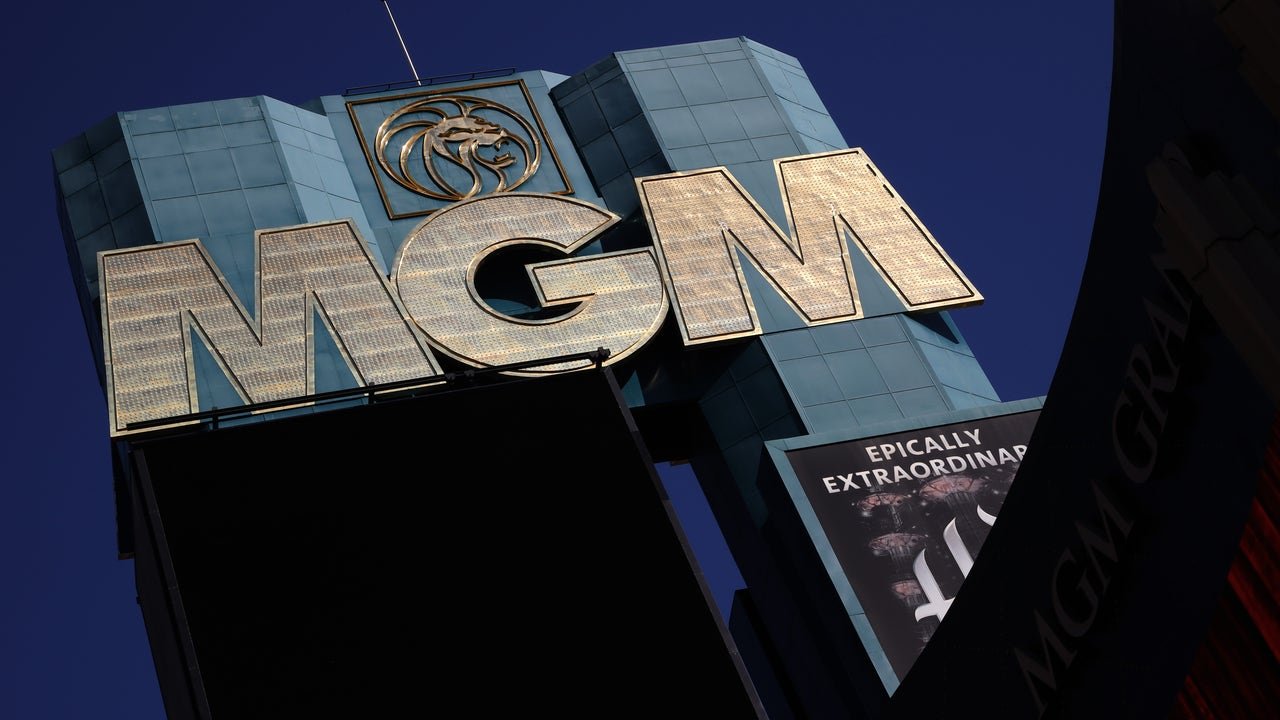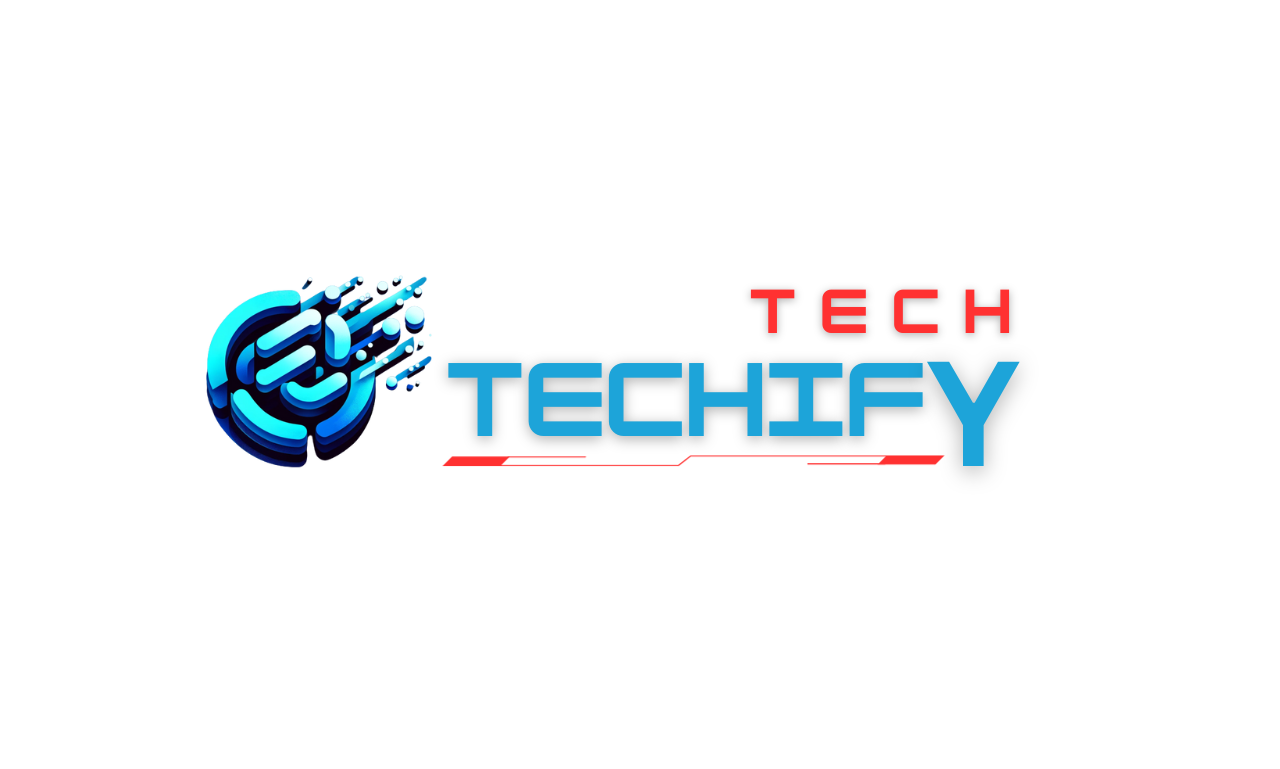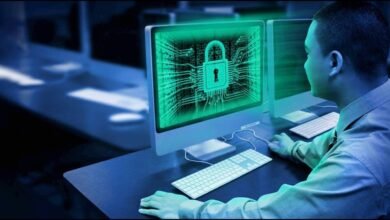Introduction to MGM Resorts
The MGM Resorts Cyber Attack Las Vegas International brand is an emblem of extravagance and pleasure in the lodging sector. With an international presence and a collection of well-known hotels, MGM Resorts offers tourists memorable stays.
MGM Resorts International is synonymous with excellence and culture, from opulent accommodations to outstanding entertainment and dining options.
With the resorts in key locations, including the dynamic city of Strip, MGM Resorts offers to discriminate travelers pursuing one-of-a-kind experiences.
MGM Resorts, an enterprise renowned for its commitment to both innovation and pleasing clients, continues to elevate the standard for first-rate greetings, making it an opulent destination for travelers on both business and leisure trips.

Overview of Cyber Attacks
In today’s connected world, cyber-attacks substantially threaten individuals, companies, and governments. Cyber spells encompass various malicious actions to exploit digital strategies and network vulnerabilities.
These episodes can take multiple structures, including malware diseases, phishing scams, ransomware attacks, and denial-of-service (DoS) attacks.
Cybercriminals use advanced tactics to penetrate plans, steal critical data, interrupt activities, and hurt financial and reputational interests.
As technology develops, so do cyber attackers’ approaches, making it vital that individuals and organizations remain attentive as they enforce stringent cybersecurity standards that safeguard against conceivable threats.
The MGM Resorts Cyber Attack Incident
The MGM Resorts Cyber Attack Incident dazed the hospitality industry, stressing exposures in cybersecurity measures and prompting general concern.

-
Background Information
The background of the MGM Resorts Cyber Attack Incident unveils a concerning narrative of digital vulnerability in the hospitality sector.
Despite the industry’s focus on visitor fulfillment and service quality, cybersecurity often occupies another place. The occurrence shows how advanced cyberattacks are becoming and how crucial it is to have effective defenses.
Historically, the hotel business has been assaulted because of its huge amounts of personal and financial data. These attacks subvert visitor confidence and pose major economic and cultural costs to the affected corporations.
This background highlights the urgent imperative for heightened cybersecurity measures across the hospitality landscape.
-
Extent of the Attack
The breadth of the MGM Resorts International Cyber Attack Incident traveled throughout the sector, demonstrating the serious effect of computer hacking on hospitality businesses.
Thieves hacked the company’s networks with outstanding accuracy, obtaining unauthorized possession of critical data.
Guests’ personal and financial information was stolen, raising worries about privacy and security. The attack’s impact exceeded digital violations, causing a ripple effect of distrust among stakeholders.
MGM Resorts had the demanding job of determining the entire length of the incident while also dealing with repercussions of stolen info and destroyed self-assurance.
-
Impact on MGM Resorts
The MGM Resorts Cyber Attack Incident left an indelible mark on the esteemed hospitality giant, reverberating throughout its operations and reputation.
The breach triggered a cascade of consequences, from financial ramifications to reputational damage. Guests and investors were concerned about the compromised safety of their personal and financial information.
Trust, painstakingly developed over years of exemplary service, was immediately broken. MGM Resorts’ owner had to work hard to regain clients’ respect while dealing with regulator inspections and potential legal consequences.
The incident underscored the critical imperative for robust cybersecurity measures and proactive risk mitigation strategies in safeguarding organizational integrity.
Response and Recovery Efforts by MGM Resorts
MGM Casinos’ reaction to the assault was rapid and broad, emphasizing containment, customer communication, and reinforcing cybersecurity.

-
Immediate Actions Taken
MGM Resorts quickly deployed its response tasks following the cyber harm, prioritizing initial actions to reduce the breach’s damage.
The company took severe steps to regulate the attack, isolating vulnerable networks and computer systems to avoid additional infiltration.
Meanwhile, MGM Resorts established transparent interaction channels, swiftly informing impacted guests and authorities about the situation.
Recognizing the issue’s seriousness, the company strengthened its cybersecurity stance by installing increased tracking instruments and fixes for reducing vulnerabilities.
Such quick and immediate steps underlined MGM Resorts’ approach to protecting consumer data and reducing cyber-attack ramifications.
-
Enhancement of Cybersecurity Measures
Due to the cyber incident, MGM Resorts thoroughly utilized its safety infrastructure to upgrade it. Recognizing the need for active defense systems, the company made several changes to bolster its digital defenses.
This involves investing in modern cybersecurity innovations such as intrusion detection systems and endpoint protection apps.
Furthermore, MGM Resorts prioritized employee education programs to foster cybersecurity understanding and alertness among its employees.
MGM Resorts International intended to reduce the risk of unforeseen cyber intrusions while protecting the integrity of its activities and visitor data by reinforcing its defenses and building a proactive defense culture.
Lessons Learned and Preventive Measures
The MGM Resorts Cyber Attack Las Vegas Cyber Attack Incident prompted introspection, leading to valuable lessons and proactive measures to mitigate future vulnerabilities.

-
Analysis of Vulnerabilities
After the internet attack, MGM Resorts carefully investigated any vulnerabilities in its computer network.
This made it imperative to carefully examine its network architecture, security mechanisms, and software systems to discover any weaknesses and possible entryways of entry for cybercriminals.
By closely examining past errors in security and potential threat vectors, MGM Resorts received substantial insight into its cybersecurity architecture and areas requiring immediate remediation.
The company unearthed vulnerabilities from outdated software patches to inadequate authentication protocols through this rigorous examination.
Armed with this knowledge, MGM Resorts could implement targeted remediation strategies to shore up its defenses and mitigate future risks effectively.
-
Implementation of New Protocols
Following the cyber assault, MGM Resorts Cyber Attack Las Vegas established various additional processes that strengthened its cybersecurity architecture.
These security measures adopted a comprehensive approach, utilizing complex identification systems, strict restrictions on access, and cutting-edge encryption technology.
Furthermore, the organization prioritized regular security audits and penetration testing to discover and solve potential weaknesses early on.
By adopting these new procedures, MGM Resorts hoped to develop a strong defense architecture capable of combating complex cyber assaults.
This proactive strategy demonstrated the business’s commitment to safeguarding its digital assets and client data.
Reputation Management for MGM Resorts
MGM Resorts prioritized reputation management after the cyber attack, focusing on transparent communication and trust-building initiatives to restore credibility.

-
Communication Strategies
After the cyber incident, MGM Resorts International employed proactive communication efforts to address stakeholder concerns and rebuild confidence.
To keep customers, staff, and investors informed, the organization emphasized transparency, provided frequent updates and established clear lines of communication.
MGM Resorts has additionally engaged in proactive promotional efforts, including as a provider of social media channels, news releases, and personal interaction paths, to demonstrate its commitment to consumer safety and security.
MGM Resorts International’s oversight discovered a way to restore customers’ and suppliers’ trust by building a culture of transparency and ownership.
-
Rebuilding Trust
Following the cyber harm, MGM Resorts intentionally attempted to regain stakeholder trust. Recognizing the significance of recovering trust in its brand, the company developed a complex strategy to restore confidence.
This includes offering identity protection services to affected visitors, improving encryption of information processes, and establishing strict security actions to avoid future intrusions.
Furthermore, MGM Resorts prioritized transparency and aggressive outreach, reminding visitors of its commitment to protecting their confidentiality.
By taking swift action and displaying transparency, MGM Resorts Cyber Attack Las Vegas intends to repair trust and reclaim the commitment of its customers and allies.
Cybersecurity in the Hospitality Industry
Security in the lodging sector was critical, requesting strong defenses and proactive steps to safeguard customer data and operations.

-
Common Threats
Common weaknesses in cybersecurity are present in the hotel industry, presenting significant risks to visitor privacy and organizational credibility.
Phishing programs are common in which bogus messages or emails trick unsuspecting recipients into disclosing private details.
Malware violence, such as ransomware and malware, targets hotel facilities to encrypt data or steal important information.
Furthermore, denial-of-service (DoS) attacks attempt to interrupt hotel operations by flooding networks with data.
These attacks emphasize the need for effective cybersecurity measures, such as frequent security audits, staff education, and advanced threat detection systems, to reduce risks while safeguarding visitor data from potential breaches.
-
Best Practices
Implementing efficient methods in cybersecurity is essential for safeguarding hospitality organizations against emerging threats.
System and networking weaknesses and vulnerabilities can be identified via regular security assessments.
Employee training programs increase knowledge about security risks and encourage necessary computer behavior. Strict access restrictions prevent unauthorized access to critical systems and data.
Encryption of visitor information ensures that data is safeguarded throughout its shipment and preservation. Using intrusion detection and prevention equipment lets you identify and neutralize dangers in real-time.
By following these best practices, hotel chains may improve their cybersecurity posture, decrease risks, and prevent guest data from viable hacking attempts.
Conclusion
In conclusion, the MGM Hotels Cyber Attack Incident was an unambiguous signal of hackers’ ongoing danger to the hotel sector. Yet, it also emphasized the necessity for proactive cybersecurity measures and open communications to reduce risks and restore confidence.
The MGM Resorts Group exhibited its dedication to protecting guest information and organizational honesty by analyzing vulnerabilities, adopting new policies, and prioritizing managing its reputation.
All hospitality players must remain mindful, invest in strong cybersecurity defenses, and establish a resilient culture to address the constantly evolving cyber threat scenario successfully.
Unique FAQs
What steps did MGM Resorts take to manage the breaking?
MGM Resorts took prompt action to stop the breach, notify affected individuals, and improve its cybersecurity efforts to prevent future happenings.
What are some typical cybersecurity threats fronted by the hospitality enterprise?
Phishing attacks, malware conditions, and data violations are common cybersecurity threats targeting hotels and motels.
How can hospitality communities rebuild trust after a cyber attack?
Hospitality organizations can rebuild trust by communicating transparently with stakeholders, offering identity protection services, and implementing robust security measures to safeguard visitor data.
What lessons can other drives learn from the MGM Resorts cyber attack incident?
Other industries can learn from the importance of prioritizing cybersecurity, conducting regular security checks, and implementing forceful measures to mitigate risks and protect sensitive information.







